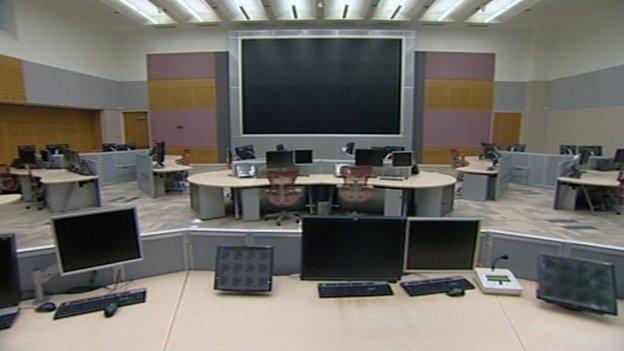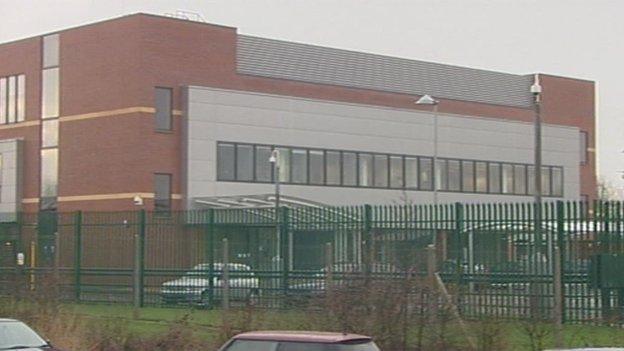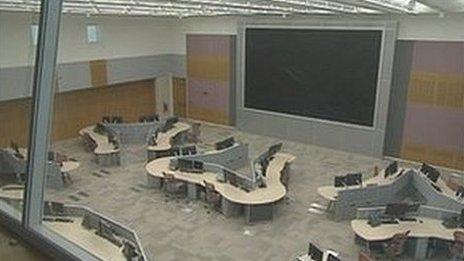Empty fire control centres costing £7.6m a year
- Published

The centres were scrapped by the coalition government in 2010
Four empty fire control centres are still costing the government £7.6m a year, the BBC has learned.
The buildings, in Cambridge, Castle Donington, Taunton and Wakefield, have never opened and cost an average of £1.9m each in 2014-15.
The charges are for rent, utilities and facilities management.
Five other buildings were constructed as part of a Labour plan to regionalise fire control centres. These have been let out, saving £90.5m in future costs.
The plan, approved in 2004, was for nine control centres to be built to replace 46 separate centres across the country.
But six years later, with costs spiralling and major delays to the IT software programme, the coalition government cancelled the scheme.
£6,000 espresso machine
Fire minister Mark Francois said: "We inherited a poorly conceived and badly delivered top-down programme to create regional fire control rooms.
"To avoid further taxpayers' money being wasted, the project was terminated after it repeatedly ran over budget and behind schedule."
The Department for Communities and Local Government (DCLG) said it had "reduced site maintenance and support costs though renegotiating contracts with our service providers" at the four empty centres.

The empty centres are costing £7.6m a year
A Freedom of Information request by BBC Somerset showed three of the four centres cost more in rent, rates and other running costs in 2014-15 than each of them did in their first full year after construction was completed.
However, the amount spent on marketing the empty centres has been cut, from £37,250 in 2012-13, to £4,030 in 2014-15.
"In 2014-15 the marketing strategy focused on using internet marketing and direct marketing, which by its nature does not incur significant spend," DCLG said.
A spokesman added the department was in "active discussions" over letting out Castle Donington and Wakefield, with interest being shown by a telecoms company.
Taunton has only had a small number of enquiries, including "a very early enquiry from a government agency in the last week".
A document published by DCLG in March, external said the Wakefield negotiations, which involve a bidder for a separate government contract, will resolve in July when that contract is awarded.
The March report also said there had been a number of viewings of the Cambridge centre with interest from a private sector internet security company, but that is no longer described as "live".
The marketing company working for DCLG said it would continue its current strategy until August while also looking at alternative "cost reduction initiatives" including mothballing or reducing the equipment in the centres.
Each of the vacant centres still has a £6,000 espresso machine in-situ which DCLG says are "a landlord's fixture and do not belong to the department".
- Published20 September 2012

- Published20 December 2010
- Published20 December 2010